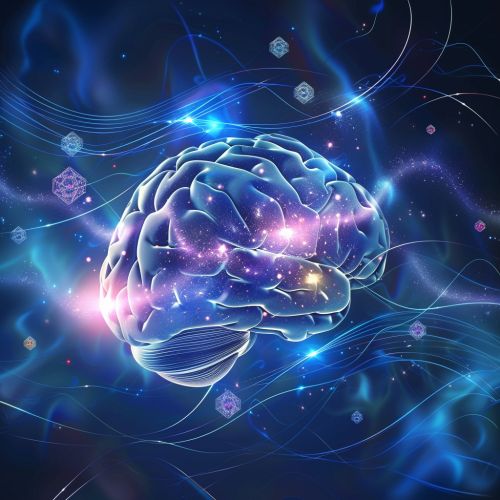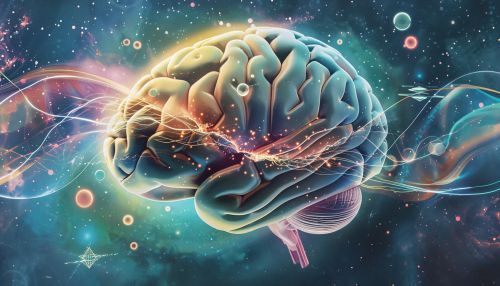Quantum Consciousness
Introduction
Quantum consciousness is a theoretical approach to understanding the nature of consciousness by applying principles from quantum mechanics. This interdisciplinary field explores the potential connections between the phenomena of consciousness and the fundamental principles governing the quantum world. The concept has sparked significant debate and research within the realms of quantum physics, neuroscience, and philosophy of mind.
Historical Background
The idea of linking consciousness with quantum mechanics dates back to the early 20th century, with pioneers such as Niels Bohr, Werner Heisenberg, and Erwin Schrödinger speculating on the implications of quantum theory for understanding the mind. However, it was not until the latter part of the century that more formal theories began to emerge.
Key Theories and Models
Several prominent theories have been proposed to explain quantum consciousness. Among the most notable are:
Orchestrated Objective Reduction (Orch-OR)
Developed by Roger Penrose and Stuart Hameroff, the Orch-OR theory posits that consciousness arises from quantum processes within the brain's microtubules. According to this model, quantum computations occur in these microtubules, leading to moments of conscious awareness.
Quantum Brain Dynamics (QBD)
Proposed by Hiroomi Umezawa and his colleagues, QBD suggests that brain function can be understood through the lens of quantum field theory. This model emphasizes the role of coherent states and long-range correlations in brain activity, potentially explaining the unity of conscious experience.
Quantum Cognition
Quantum cognition applies the mathematical formalism of quantum mechanics to model cognitive processes such as decision-making and perception. Researchers in this field argue that certain cognitive phenomena, such as superposition and entanglement, can be better understood using quantum principles.
Quantum Mechanics and Consciousness
Quantum mechanics is the branch of physics that deals with the behavior of particles at the atomic and subatomic levels. Key principles of quantum mechanics, such as superposition, entanglement, and wavefunction collapse, have been explored in the context of consciousness.
Superposition
In quantum mechanics, superposition refers to the ability of a particle to exist in multiple states simultaneously. Some theories of quantum consciousness suggest that the brain may utilize superposition to process information in parallel, leading to the emergence of conscious experience.
Entanglement
Quantum entanglement is a phenomenon where particles become interconnected, such that the state of one particle instantaneously influences the state of another, regardless of distance. This concept has been proposed as a potential mechanism for the unity of consciousness, where different parts of the brain may be entangled to produce a coherent conscious experience.
Wavefunction Collapse
The collapse of the wavefunction is a process by which a quantum system transitions from a superposition of states to a single, definite state upon measurement. Some theories, such as Orch-OR, suggest that wavefunction collapse within the brain's microtubules could be linked to moments of conscious awareness.


Criticisms and Controversies
Quantum consciousness is a highly controversial field, with many critics arguing that the application of quantum mechanics to consciousness is speculative and lacks empirical support. Key criticisms include:
Lack of Empirical Evidence
One of the primary criticisms is the lack of direct empirical evidence supporting the connection between quantum mechanics and consciousness. While some experimental findings suggest quantum effects in biological systems, conclusive evidence linking these effects to conscious experience remains elusive.
Complexity of the Brain
Critics argue that the brain's complexity and the scale at which quantum effects operate make it unlikely that quantum mechanics plays a significant role in consciousness. The brain's macroscopic nature and thermal environment are seen as obstacles to maintaining quantum coherence.
Philosophical Objections
Philosophers of mind have raised objections to quantum consciousness theories, arguing that they do not adequately address the hard problem of consciousness, which concerns the nature of subjective experience. Some philosophers contend that quantum mechanics, as a physical theory, cannot fully explain the qualitative aspects of consciousness.
Future Directions and Research
Despite the controversies, research into quantum consciousness continues to evolve. Future directions include:
Experimental Investigations
Advancements in experimental techniques may provide new insights into the potential role of quantum mechanics in biological systems. Researchers are exploring the possibility of detecting quantum coherence and entanglement in neural processes.
Interdisciplinary Approaches
Collaboration between physicists, neuroscientists, and philosophers is essential for advancing our understanding of quantum consciousness. Interdisciplinary research may help bridge the gap between theoretical models and empirical findings.
Technological Applications
The exploration of quantum consciousness has potential implications for the development of quantum computing and artificial intelligence. Understanding the quantum nature of consciousness could inform the design of more advanced computational systems.
